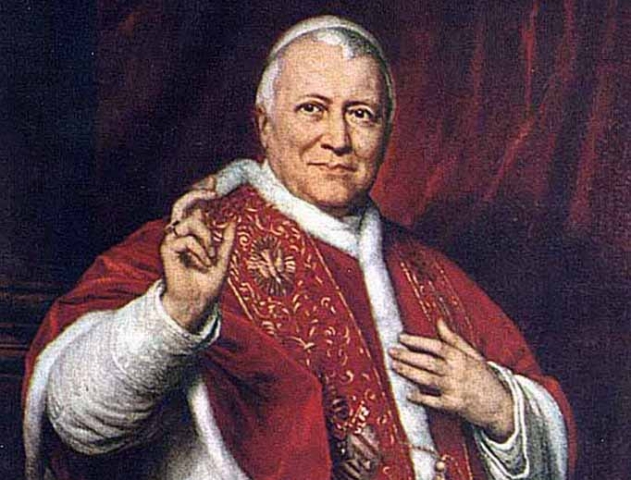On February 21st, 1852, Pope Pius IX wrote to the Grand Duke of Tuscany, Leopold II, in protest of his decision to grant full emancipation to Jews. Leopold II had succeeded his father as Grand Duke roughly 30 years earlier and continued his father’s liberal outlook which seeks to grant freedom and education to as many as possible, something the Catholic Church was not necessarily in favor of.
Giovanni Maria Mastai-Ferretti, or Pope Pius IX, was regarded by the Catholic world and the Italian public as a progressive reformist who sought to modernize the papacy. The first few years of his papacy which began in 1846 provided much promise to the Jewish-Roman public as he introduced a series of reforms that included measures aimed at aiding Jewish livelihood, such as ordering the end of forced attendance at conversion sermons and even allowing a number of Jewish families to reside outside the ghetto. Despite his relatively progressive outlook, the Pope was still content with the idea that infidels to Catholicism, especially Jews, should not have the same level of freedom as the Italian-Catholic public.
Pope Pius IX protests the partial emancipation of Jews under Grand Duke Leopold II of Tuscany. The pope writes of the need to try to keep Catholics “from having any contact with the infidels.”https://t.co/WgVqDAHgsB pic.twitter.com/PlbfrvAASf
— Center for Israel Education (@israeleddotorg) February 21, 2022
In early 1848, in the Piedmont area, full civil rights to the Jews were granted, while others such as the Rome area saw the agreement of Catholicism as necessary for granting full political rights to the Jews. Shortly after showing goodwill and tearing down the Jewish ghetto walls in Rome, and just after a confrontation with Austria, the Pope blamed the Jews for the unrest for agitating against the Church and its rule, and he reversed many of his earlier reforms.
On February 21, 1852, the Pope wrote to King Leopold II: “Your Highness is not unaware of the fact that the spirit of the Church, expressed in many dispositions and decrees has always been to keep Catholics as much as possible from having any contact with the infidels. Otherwise, it will open the way to requests for other civil rights for the Jews and for other non-Catholics.”
February 21, 1852 - Pope Pius IX protests emancipation rights for Jews in Italy https://t.co/MQYuLnJ3Yq
— Professor Ken Stein, Founder, CIE (@kenwstein) February 21, 2016
These events in the Italian kingdoms highlighted the tentative Catholic nature in regard to permitting Jewish emancipation. The Vatican would continue to be opposed to Jewish emancipation well into the 20th century. In 1904, Pope Pius IX would refuse to offer recognition or assistance to Theodor Herzl and the entire Zionist movement, claiming Jerusalem as Catholic land and he would only help convert the Zionists, but not rebuild a Jewish state.


